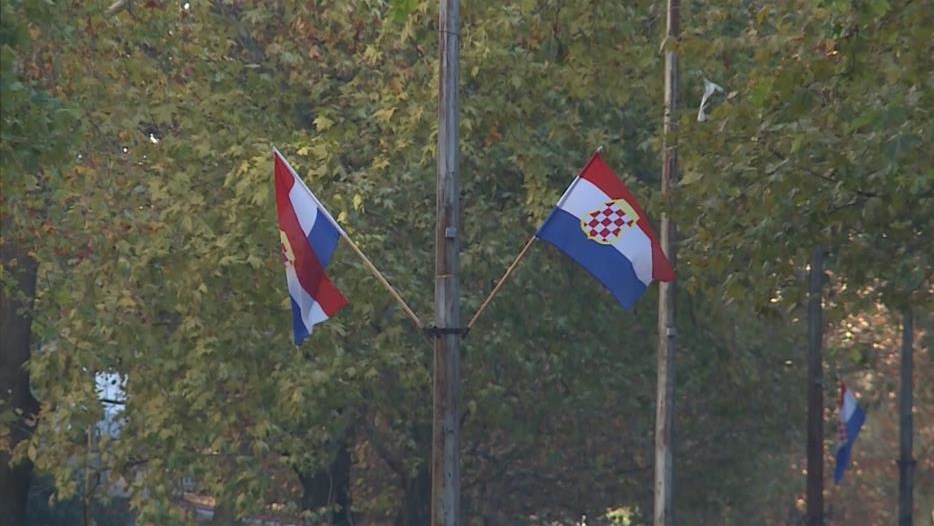
The Prosecutor's Office of the Herzegovina-Neretva Canton (HNK) has declared on Tuesday that the promoting the flag of the wartime self-declared para-state of Herzeg-Bosnia is not a criminal offense.
Oglas
The flag of Herzeg-Bosnia can often be found in Bosnian Croat majority areas the country.
The editor of the local Tacno.net web portal, Stefica Galic, submitted a complaint regarding the flags being laid out in the centre of Mostar to police in November 2016.
The Prosecutor’s Office in HNK responded after two years, saying the laying out of the flag does not represent a punishable offense but that it may represent a misdemeanor if the flags are being laid out without the approval of the local government.
Oglas
Bosnia's Criminal Code does not treat the issue of laying out such flags, HNK Prosecutor Zekerijah Sinanovic said.
Herzeg-Bosnia was established by Croat nationalists in the south of Bosnia and Herzegovina in 1991. Its armed forces, the Croatian Defence Council (HVO), were at first allied with Bosniak armed forces. But the HVO and Bosnia's Army turned against each other after the para-state declared itself a republic on August 28, 1993, and changed its name into Croatian Republic of Herzeg-Bosnia (HRBH), with Mostar named its capital.
The para-state had the ambition to become one of three ethnic republics in Bosnia, or preferably become part of neighboring Croatia.
The Croat-Bosniak conflict ended in 1994 with an agreement brokered in Washington DC which prescribed the creation of a Bosniak-Croat Federation entity (FBiH) out of territories controlled by Bosniaks and Bosnian Croats. Herzeg-Bosna was abolished two years later.
Oglas
The International Criminal Tribunal for the Former Yugoslavia (ICTY) has, in its rulings against six HVO war criminals, determined that Herzeg-Bosnia was an illegal structure that had the goal of creating a Croatian entity in Bosnia and Herzegovina and uniting it with neighbouring Croatia.
Kakvo je tvoje mišljenje o ovome?
Učestvuj u diskusiji ili pročitaj komentare
Oglas
Kakvo je tvoje mišljenje o ovome?
Učestvuj u diskusiji ili pročitaj komentare
Oglas
NAJČITANIJE
Oglas
Oglas
Najnovije
Oglas
Oglas





 Srbija
Srbija
 Hrvatska
Hrvatska
 Slovenija
Slovenija



























































